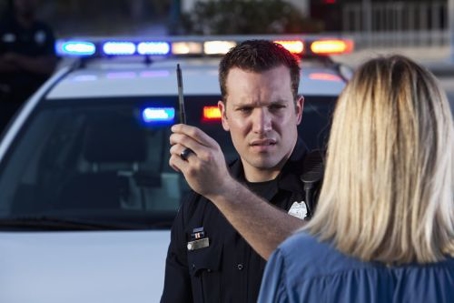If you’ve been pulled over on suspicion that you were driving under the influence of alcohol, the police may ask you to take a field sobriety test. This is an important tool that is used by law enforcement to help determine whether you were impaired while operating your vehicle. Significantly, a driver is required to submit to sobriety testing under New Hampshire’s implied consent law — and a field sobriety test will usually come before a breath or chemical test. While the results of these tests can be used in court by the prosecution to establish evidence of intoxication, there are also several reasons a driver might not be able to successfully perform one.
How are Field Sobriety Tests Used in a DUI/DWI Case?
A field sobriety test is a roadside test that law enforcement uses to gauge a person’s level of intoxication. These evaluations are meant to assess balance and coordination to determine impairment in a DUI/DWI case. The results of a field sobriety test can provide the basis for establishing probable cause to arrest an individual who is suspected of driving under the influence. Notably, evidence of a refusal to take a field sobriety test cannot be raised by the prosecution in court if the officer fails to explain the consequences of violating the implied consent law.
Many police vehicles have dashboard cameras that will record the performance of a field sobriety test. This footage can be used in court as evidence to demonstrate intoxication during the evaluation. However, the results of a field sobriety test are only admissible in court if the police officer who conducted the test was properly trained to do so.
What Types of Field Sobriety Tests Can Be Used?
There are three standardized field sobriety tests that are typically used by law enforcement if you are suspected of a DUI/DWI. These tests are endorsed by the National Highway Traffic Safety Administration and conducted in the same manner each time they are administered to ensure accuracy in the results. The standardized field sobriety tests used in New Hampshire DUIs/DWIs include the following:
- Horizontal gaze nystagmus (HGN) test — While conducting the HGN test, a police officer will ask you to follow a moving object, such as a pen or flashlight, with your eyes. The purpose of this test is to assess whether your eyes jerk involuntarily, known as nystagmus. When nystagmus is more pronounced, it can indicate impairment.
- One-leg stand — When the one-leg stand test is used, the police officer will ask you to stand on one leg while raising the other six inches off the ground. You will be asked to count out loud while the officer observes whether you sway, put your foot down, or hop. This test is difficult to perform if you are under the influence of alcohol.
- Walk-and-turn test — The walk-and-turn test allows a police officer to look for clues of impairment as you walk in a straight line, heel-to-toe for nine steps. You are then required to turn around and walk back. Signs that law enforcement will look for to determine that you are under the influence can include an inability to keep your balance, starting too soon, or walking before the steps are completed.
If you fail any of the above field sobriety tests, you may be asked to submit to a breath, blood, or urine test. In New Hampshire, a driver gives their implied consent to take field sobriety tests and a chemical test when they are operating a vehicle within the state. A refusal to submit to testing would be a violation of the implied consent law and your license would be revoked for a period of 180 days — even if you had no prior DUI/DWI convictions. A first refusal with a prior DUI/DWI on your record could result in your license being suspended for two years.
What Factors Can Influence How a Field Sobriety Test is Performed?
There are numerous factors that can influence how you perform a field sobriety test, apart from intoxication. Depending on the facts of your case, you may be able to raise certain defenses based on the conditions under which the test was administered. For instance, nervousness or anxiety can lead to shaky movements — or uneven surfaces can lead to an inaccurate outcome. You may also have a viable defense if you weren’t provided with clear instructions and failed to understand how to perform the test.
In addition, various medical conditions or medication can impact balance and coordination. Leg conditions, inner ear issues, arthritis, neurological conditions, and diabetes are all conditions that could affect a person’s physical or cognitive abilities and lead to a false positive result in a field sobriety test.
Contact an Experienced New Hampshire DUI/DWI Attorney
Facing DUI/DWI charges in New Hampshire can be stressful and overwhelming. If you’ve been arrested for a DWI, it’s crucial to have a knowledgeable criminal defense attorney by your side who can protect your rights. Offering experienced counsel and reliable representation, the attorneys at Beaton & Kiers provide skillful defense and reliable representation for DUIs/DWIs in New Hampshire. To learn more about how we can help, contact us to schedule a consultation.

